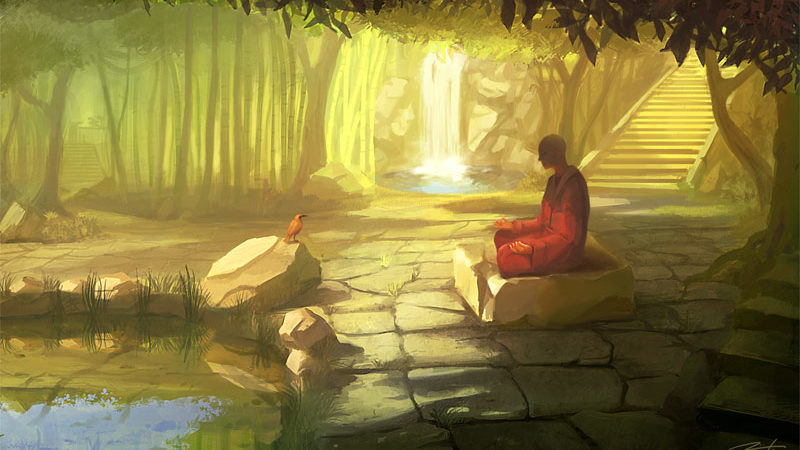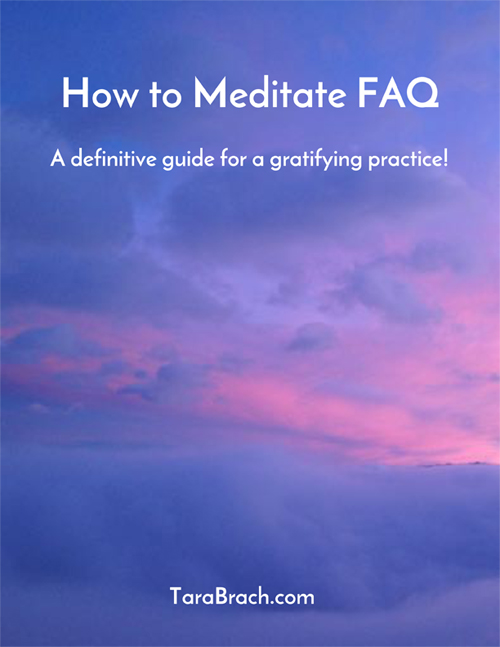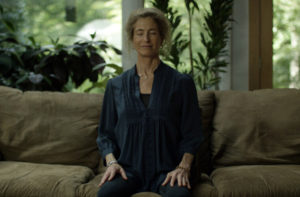In bullfighting there is an interesting parallel to what I call the art of pausing, as a place of refuge and renewal. It is believed that in the midst of a fight, a bull can find his own particular area of safety in the arena. There he can reclaim his strength and power. This place and inner state are called his querencia. As long as the bull remains enraged and reactive, the matador is in charge. Yet when he finds querencia, he gathers his strength and loses his fear. From the matador’s perspective, at this point the bull is truly dangerous, for he has tapped into his power.
The experience of one of my clients, Laura, provides a good example of how we can all learn to face our own matadors by courageously learning to pause in order to harness the strength of our querencia
In the beginning of our therapy sessions, Laura had begun referring to her mother as “the dragon” because of the incinerating burn of her words. At one meeting we did a guided visualization, and Laura imagined herself involved in a struggle with a real dragon. She saw herself crawling on the ground, dodging behind boulders, climbing and hiding in tree branches. Reptilian and ferocious, the dragon found her everywhere she hid. Avoiding its eyes, Laura continually struggled to escape from its fiery breath. Immersed in this drama, she told me she felt weak and exhausted from her efforts to escape, and much too small to fight back.
I suggested to Laura that she could face her mother’s attacks from a place of inner strength by learning how to pause. When fear or rage surged up in her, she could stop all outward activity and simply pay attention to what she was experiencing inside her. I let her know that if she could pause instead of shouting or storming out of painful encounters, she would, in time, find her own querencia, and be able to respond to her circumstances in a more balanced and effective way.
Learning how to do this is not easy work. When we first practice pausing, we can easily be swept away into the raw feelings that have been dictating our behavior for so many years. It is important to ease in gradually, and, if possible, with the support of others. Practicing by imagining a recent or likely situation is useful. Yet if we get caught in a charged situation, a good way to begin is to take a “time out” and find a quiet, safe place to practice the pause. It always helps to start with a few deep breaths, consciously relaxing the body and mind.
After several weeks of practicing like this in our therapy sessions, Laura came in one day and told me that something had genuinely shifted. At a dinner with her family, her mother had started demanding to know when she was going to start looking for a new job. Before Laura had a chance to respond, her mother leaned forward, her voice sharp and derisive. “Don’t tell me. I know. You’re just waiting for it to drop into your lap … like manna from heaven.” As if Laura’s silence were a green light to continue, her mother broadened the attack: “So, are you planning to have Phil support you all your life?”
Heart pounding loudly, Laura paused and took a few deep breaths. She felt searing heat in her chest, as if she had been stabbed, and everything in her wanted to scream out in rage. But instead, she simply said, “I don’t know, Mom,” and sat back in her chair. “Right” her mother retorted, perhaps surprised to receive so little fuel for her fire, and turned away to talk with Laura’s brother.
Laura didn’t know what would happen next. As she continued in the pause, she felt her body trembling and shaking. Her chest felt like it was about to burst open. She noticed the confusion of stories swirling through her mind: “Laura the one who screws up,” “Laura the raging maniac.”
In the midst of this turmoil she heard an inner voice whisper, “This feels horrible … and I can handle it.” Since she had felt this agitation many times in our therapy sessions, she knew it was bearable and wouldn’t last. As Laura relaxed she felt a spaciousness slowly opening in her chest and throat. The sharp hurt began dissolving, and in its place a profound sense of sorrow arose. As she allowed all these feelings to unfold, she felt as if she were gently caring for the wounded places inside her.
No longer trapped inside a trance of unworthiness, Laura could now imagine some choices. She could stay for the rest of the evening, or go home. She could confront her mother and tell her why she hadn’t found a job, or she could let the incident slide. Whatever her response, it would now arise from a fresh way of responding to her own self. Pausing had enabled Laura to accept everything she was feeling, and she was left with a surprising warmth and kindness.
When she looked at her mother, Laura felt a upsurge of tenderness. She saw a woman ensnared in her own insecurity, words tumbling out of control, hands tightened into fists. By the time they parted later that evening, she was actually able to look her mother in the eye, touch her arm, smile.
Laura had faced the dragon, both in her mother and in herself. Underneath her mother’s fiery exterior she had found a wounded person. Similarly, Laura’s dragon had been guarding her own vulnerability, her fear of being bad, her shame. Under the layers of sharp scales she had found her own soft and kind heart. By tapping into her own querencia, Laura could now act from a place of strength, compassion, and balance.
Poet Rainer Maria Rilke expresses a deep understanding of the dragons all of us face: “How could we forget those ancient myths that stand at the beginning of all races—the myths about dragons that at the last moment are transformed into princesses. Perhaps all the dragons in our lives are only princesses waiting for us to act, just once, with beauty and courage. Perhaps everything that frightens us is, in its deepest essence, something helpless that wants our love.”
From Radical Acceptance (2003)
For more information go to: www.tarabrach.com


